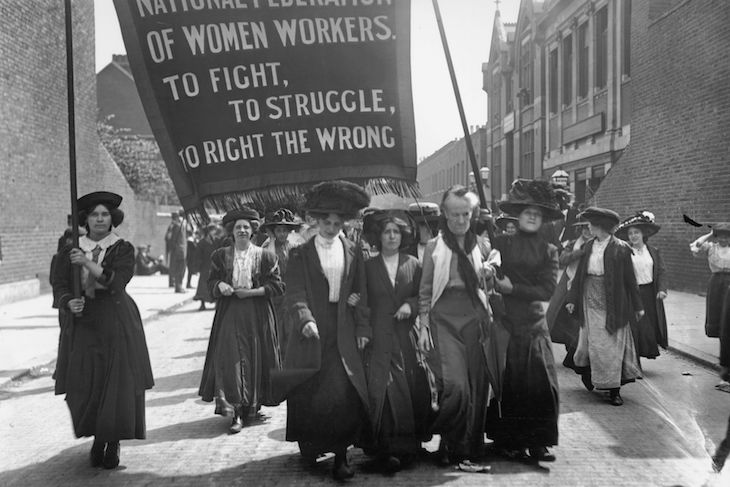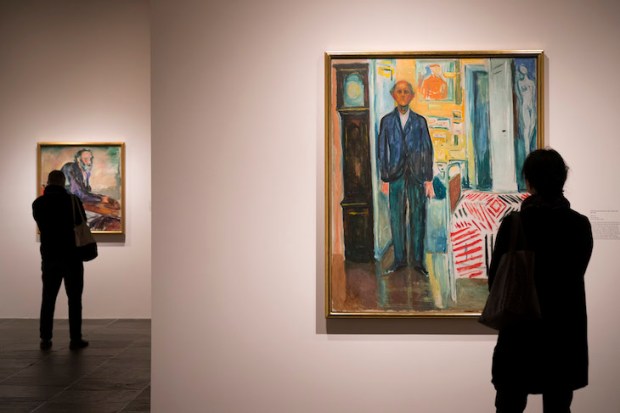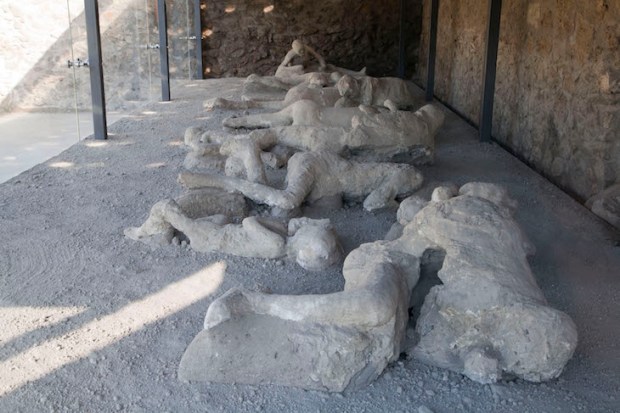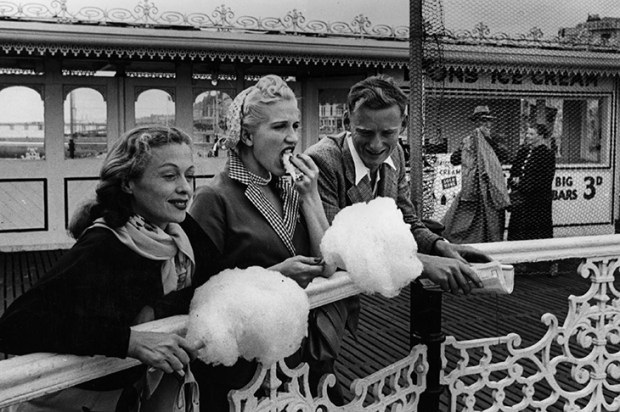Lissa Evans has had a good idea for her new novel. It’s ‘suffragettes: the sequel’. She sets her story not in 1918 but in 1928. Two washed-up spinster suffragettes in their sixties, Florrie (known as ‘the Flea’) and Mattie, live together platonically in a house in Hampstead known as the Mousehole, because it used to be a convalescent home for hunger-striking suffragettes during the Cat and Mouse Act. It’s freezing, and they cut up old Christmas cards for splints, conversing like two dotty old dons. ‘What utter spinach!’ ‘Small sherry? Or a toddy? Buck you up a bit.’
Their WSPU glory days are behind them. Florrie is now a sanitary inspector, and Mattie gives lectures with slides about her window-smashing past. She still wears her Holloway brooch and her hunger-strike medals, and she has a permanent depression in one calf resulting from a steward jabbing the ferrule of his umbrella directly into the muscle.
So, what’s the plot going to be? Well, Mattie decides to start a girls’ club on Hampstead Heath, aiming to train girls from different backgrounds in vigorous pursuits such as wood-chopping, as well as in vigorous thinking — her mottoes are ‘Dare to be a Daniel’ and ‘Say not the needle is the proper pen for a woman’. The club is called the Amazons, but there’s another club on the Heath called the Empire Youth League, whose members do drills and polish their uniform buttons, ‘using strength and commitment to drive back the sickly tide of foreign interference’.
So, basically, it’s Fascists and Amazons: they have a competitive treasure hunt, and something goes terribly wrong. And it’s not the girls’ fault, it’s Mattie’s. Her cheerful self-confidence is shattered when a girl joins the Amazons who Mattie guesses to be the illegitimate daughter of her deceased brother who was hideously wounded in the war, and she simply can’t cope with the confusion and grief. ‘So clear the suffragette cause; life afterwards so muddy and confusing.’
I wish I could say the novel is brilliant. It’s told with vigour and it may be just the thing to take to the beach this August, if you love the suffragettes and still haven’t had enough of them. I found it rather unrealistic and over-written, full of women making too-clever remarks to each other. There’s a sub-plot, which is both obvious and far-fetched, about a girl called Ida who Mattie finds toiling in the first-class waiting-room at St Pancras and recruits to join the Amazons. Cinderella-like, she’s prettier and nicer than the posh girl Inez who’s ‘as zestless as a marzipan lemon’. Ida later has a son out of wedlock and dumps him on the aged Mattie, rather as one would dump an unwanted cat on a kind old lady. It didn’t quite ring true.
But full marks to Lissa Evans for making us think about what it would have been like to be an ex-suffragette when all the men you might have married had been killed at the Somme. Decades later, you’d still be trading on your old sayings, such as ‘all things are difficult before they are easy’ and ‘abused patience turns to fury’.
Got something to add? Join the discussion and comment below.
Get 10 issues for just $10
Subscribe to The Spectator Australia today for the next 10 magazine issues, plus full online access, for just $10.
You might disagree with half of it, but you’ll enjoy reading all of it. Try your first month for free, then just $2 a week for the remainder of your first year.














Comments
Don't miss out
Join the conversation with other Spectator Australia readers. Subscribe to leave a comment.
SUBSCRIBEAlready a subscriber? Log in